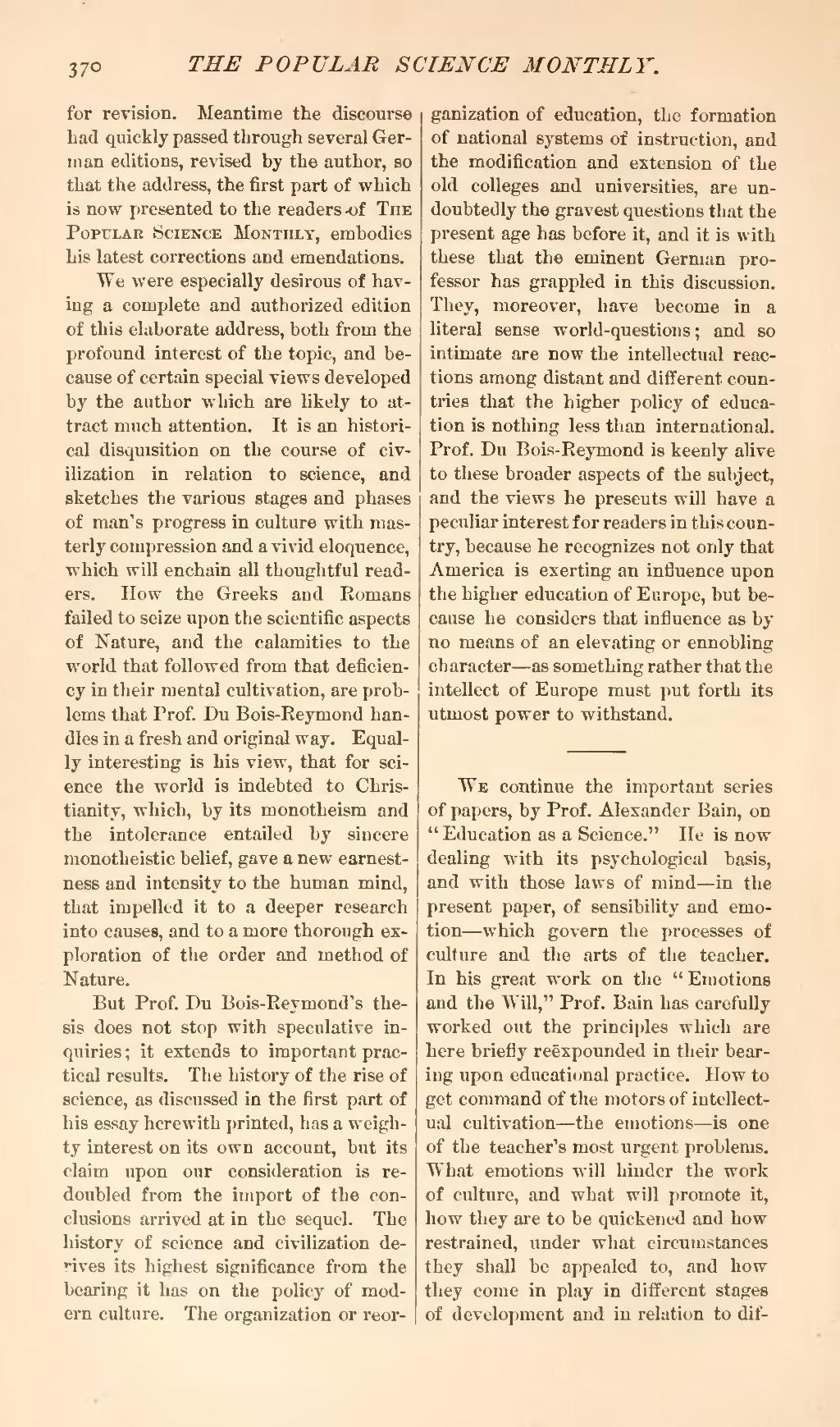for revision. Meantime the discourse had quickly passed through several German editions, revised by the author, so that the address, the first part of which is now presented to the readers of The Popular Science Monthly, embodies his latest corrections and emendations.
We were especially desirous of having a complete and authorized edition of this elaborate address, both from the profound interest of the topic, and because of certain special views developed by the author which are likely to attract much attention. It is an historical disquisition on the course of civilization in relation to science, and sketches the various stages and phases of man's progress in culture with masterly compression and a vivid eloquence, which will enchain all thoughtful readers. How the Greeks and Romans failed to seize upon the scientific aspects of Nature, and the calamities to the world that followed from that deficiency in their mental cultivation, are problems that Prof. Du Bois-Reymond handles in a fresh and original way. Equally interesting is his view, that for science the world is indebted to Christianity, which, by its monotheism and the intolerance entailed by sincere monotheistic belief, gave a new earnestness and intensity to the human mind, that impelled it to a deeper research into causes, and to a more thorough exploration of the order and method of Nature.
But Prof. Du Bois-Reymond's thesis does not stop with speculative inquiries; it extends to important practical results. The history of the rise of science, as discussed in the first part of his essay herewith printed, has a weighty interest on its own account, but its claim upon our consideration is redoubled from the import of the conclusions arrived at in the sequel. The history of science and civilization derives its highest significance from the bearing it has on the policy of modern culture. The organization or reorganization of education, the formation of national systems of instruction, and the modification and extension of the old colleges and universities, are undoubtedly the gravest questions that the present age has before it, and it is with these that the eminent German professor has grappled in this discussion. They, moreover, have become in a literal sense world-questions; and so intimate are now the intellectual reactions among distant and different countries that the higher policy of education is nothing less than international. Prof. Du Bois-Reymond is keenly alive to these broader aspects of the subject, and the views he presents will have a peculiar interest for readers in this country, because he recognizes not only that America is exerting an influence upon the higher education of Europe, but because he considers that influence as by no means of an elevating or ennobling character—as something rather that the intellect of Europe must put forth its utmost power to withstand.
We continue the important series of papers, by Prof. Alexander Bain, on "Education as a Science." He is now dealing with its psychological basis, and with those laws of mind—in the present paper, of sensibility and emotion—which govern the processes of culture and the arts of the teacher. In his great work on the "Emotions and the Will," Prof. Bain has carefully worked out the principles which are here briefly reëxpounded in their bearing upon educational practice. How to get command of the motors of intellectual cultivation—the emotions—is one of the teacher's most urgent problems. What emotions will hinder the work of culture, and what will promote it, how they are to be quickened and how restrained, under what circumstances they shall be appealed to, and how they come in play in different stages of development and in relation to dif-

